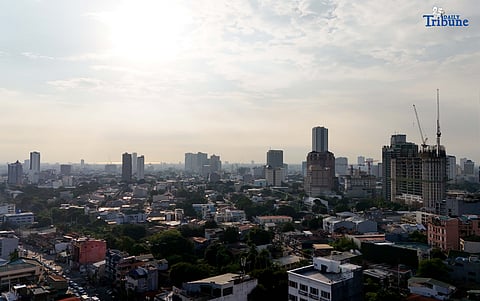
- NEWS
- the EDIT
- COMMENTARY
- BUSINESS
- LIFE
- SHOW
- ACTION
- GLOBAL GOALS
- SNAPS
- DYARYO TIRADA
- MORE

The Philippines and the Republic of Korea recently signed a Memorandum of Understanding (MOU) for the Clean Air for Sustainable ASEAN (CASA) Cooperation Project, which will be implemented over a two-year period from 2025 to 2026.
The MOU was signed by Assistant Secretary for Environment and concurrent Director of the DENR Environmental Management Bureau (EMB), Jacqueline A. Caancan, and the Principal Investigator of CASA and Seoul National University (SNU) Graduate School of Public Health, Professor Kiyoung Lee, in Pasay City.
The CASA Project, funded by the ASEAN–Republic of Korea Cooperation Fund and launched in January 2023, aims to empower ASEAN Member States with the tools and expertise needed to build robust air quality management systems through the provision of advanced equipment and capacity-building programs.
“By bringing together scientific research and international teamwork, the CASA Project, a partnership between the EMB and Seoul National University, will create better data and monitoring systems, laying the groundwork for smarter, evidence-based policies,” Assistant Secretary Caancan said.
Highlighting the importance of collaboration in addressing transboundary air quality concerns, Caancan added that this historic agreement brings the Philippines and South Korea closer to a shared goal of cleaner air, healthier communities, and stronger resilience against current environmental challenges.
“This partnership strengthens our nations' bonds and represents a shared dedication to environmental protection, making a meaningful contribution to regional sustainability efforts across the ASEAN region,” she said.
The event also featured the official handover of two state-of-the-art air quality monitoring devices from the Republic of Korea to the Philippines. One unit will be installed at the Air Quality Monitoring Station (AQMS) in Pasay City and the other in Quezon City. Key officials from EMB, SNU, and project partners were present at the ceremony.
The equipment can measure PM2.5 and O₃ levels, expanding the AQMS’s capacity to capture real-time data linked to national and regional air quality monitoring platforms. This data on key pollutants is vital for developing evidence-based environmental policies and targeted interventions. The upgraded AQMS underscores the Philippines’ commitment to protecting public health and promoting sustainable air quality management.
“The CASA project, supported by the ASEAN-Republic of Korea Cooperation Fund and jointly implemented by Seoul National University and partner institutions across ASEAN, aims to identify the sources and health impacts of air pollution, strengthen monitoring systems, and develop effective policy responses,” said Counselor Hyun Jung Jung of the Embassy of the Republic of Korea in the Philippines.
“By establishing air quality monitoring infrastructure throughout the Philippines and across ASEAN, and by harnessing scientific analysis, the CASA project will enhance ASEAN’s capacity to respond to air pollution, thereby improving the quality of life and public health of our peoples,” Counselor Jung added.
In addition to the equipment turnover, the CASA Project includes technical training and capacity-building activities for EMB air quality specialists. These programs aim to strengthen expertise in monitoring, data interpretation, reporting, and formulation of responsive air quality interventions.
Caancan expressed optimism that the partnership with South Korea will serve as a model for regional environmental cooperation, rooted in mutual support and shared responsibility. In line with this, the DENR–EMB remains committed to strengthening air quality management systems through science, collaboration, and innovation—ensuring cleaner and safer air for all Filipinos, especially in urban areas.
With the CASA Project, the Philippine government and the ASEAN community are taking concrete steps toward cleaner air and healthier futures.
